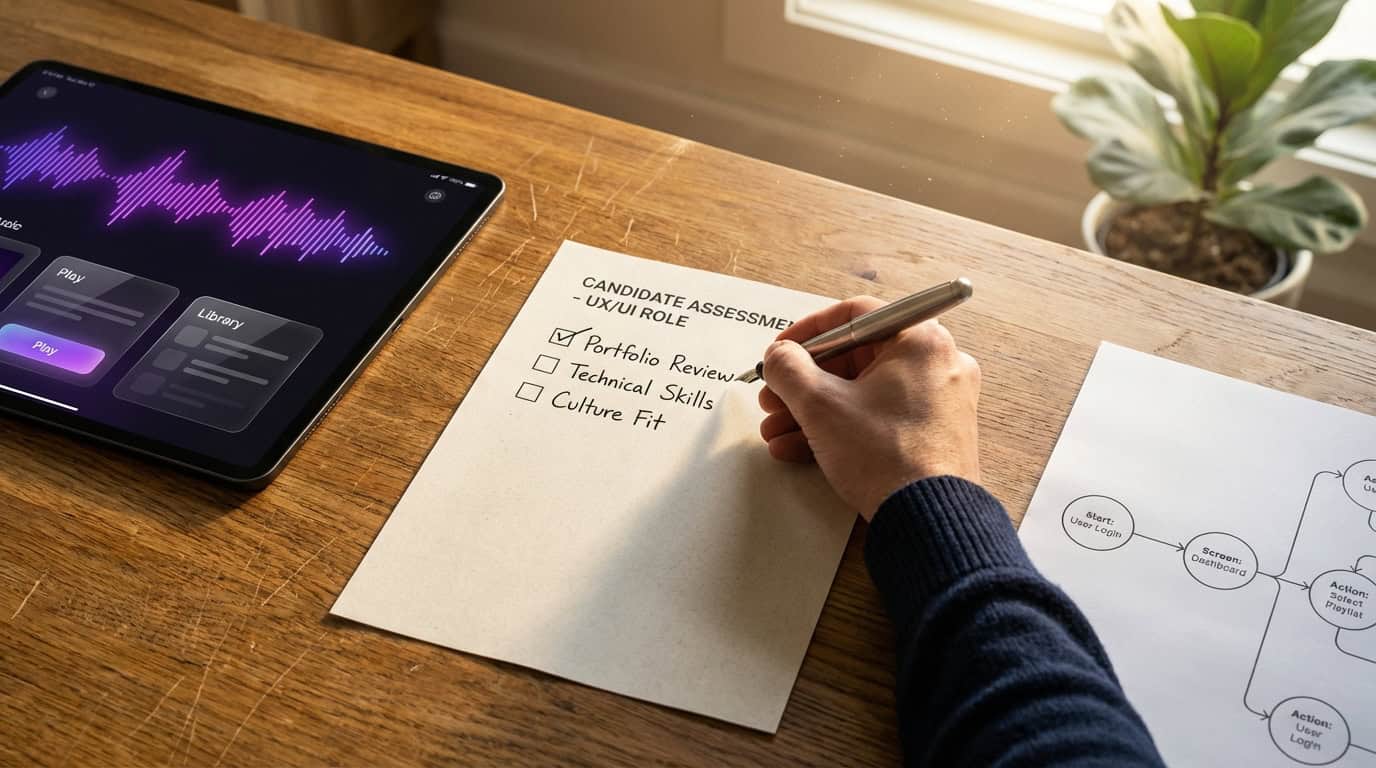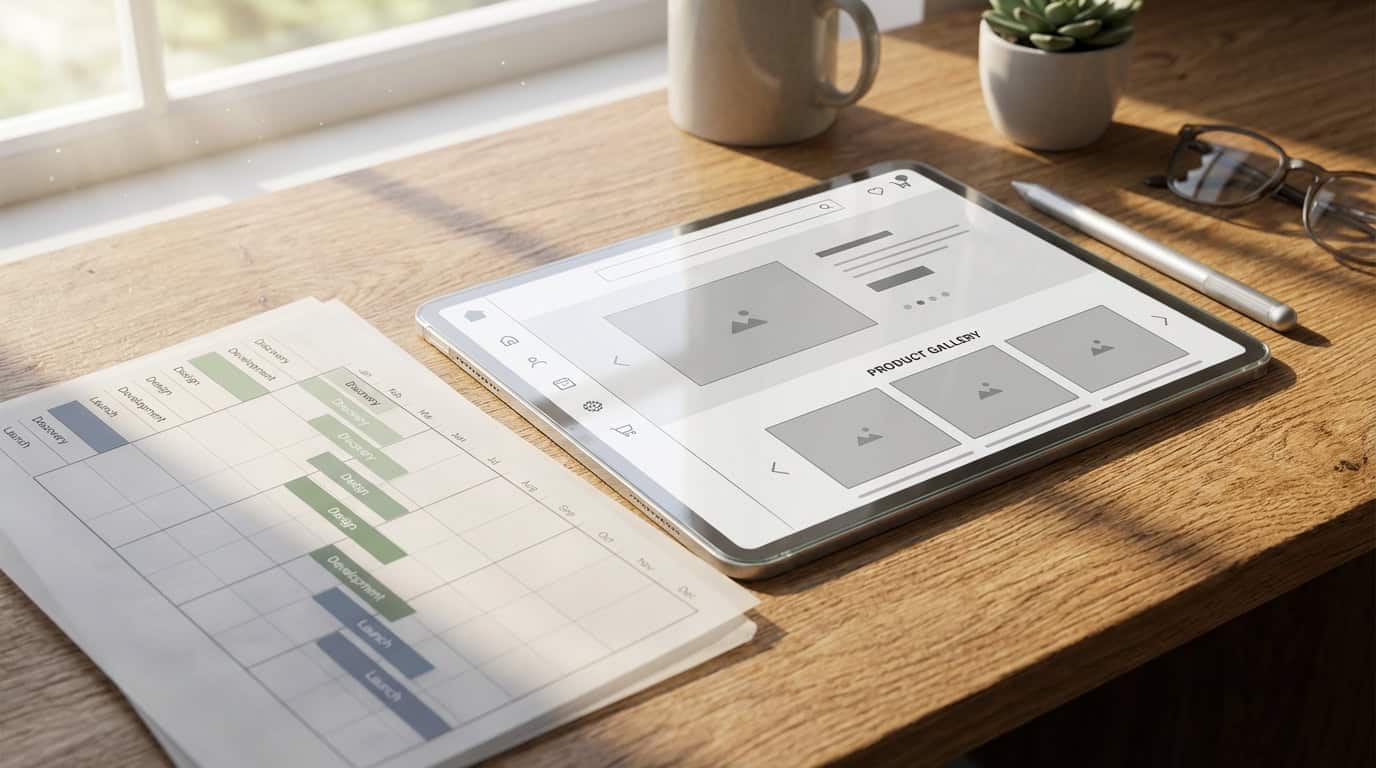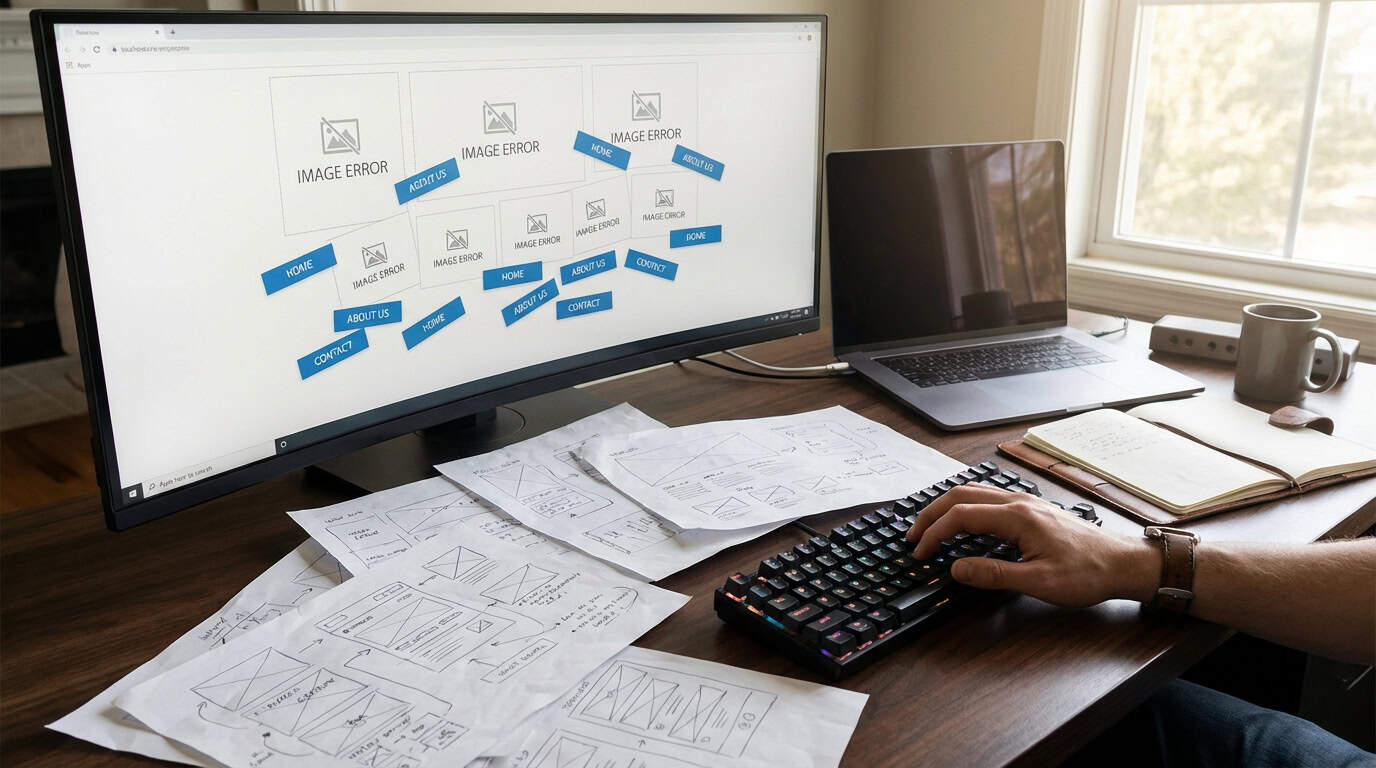Do you need help with your website design? Are you looking for someone who will make sure your site looks great, perform well, and get found online?
There are many reasons why you might hire a web designer. Maybe you just want to update your old website. Or maybe you’re launching a new product line and want to redesign your whole site from scratch. Whatever your reason, hiring a web designer is probably one of the most important decisions you’ll make as a business owner.
Key Takeaways
- Define Your Goals: Clearly understand the purpose of your website to find a designer who aligns with your needs, whether it’s for eCommerce, informational content, or another focus.
- Budget Awareness: Consider all costs associated with website creation, including hosting, domain registration, and content creation, to set a realistic budget.
- Content Management: Determine who will manage and update the website content, whether it’s the client or the designer.
- SEO Knowledge: Ensure your web designer is familiar with SEO best practices to enhance your website’s visibility and performance in search engines.
But before you do anything else, you need to understand exactly what you need from your web designer. In this article, we’ll go over everything you need to know before hiring a web designer.

1. What Do You Want Your Website to Achieve?
Before you hire a web designer, ask yourself what you want your website to achieve. This question will give you a clear idea of what you want your website’s purpose to be.
For example, if you want your website to showcase your products and services, you would probably want to hire a web designer who specializes in eCommerce sites.
This person will understand the basics of online shopping and will be able to develop a website that showcases your products and services effectively.
On the other hand, if you want your site to be informational, you would most likely want to hire a web developer who specializes in information technology.
He/she will be able to provide you with informative content and will be able to update your site regularly.
It’s important to note that you don’t necessarily have to hire a web designer or developer who specializes in your niche. However, it does help to find someone who understands your industry and can deliver results.
2. How Much Does It Cost?
There are three basic costs associated with building a website: hosting, domain name registration, and content creation.
Hosting refers to the space on a server where your website files live. Hosting companies charge monthly fees based on the amount of storage space you need.
Domain names are short strings of letters and numbers that identify your website. Domain registrars provide these services.
Content creation involves writing text, images, videos, and other elements that appear on your website. Content creators typically charge hourly rates.
You should take account these basic costs as well ash an additional expenses that may arise during the project. This is so you will know what budget you have available.
3. What Features Does Your Site Require?
Once you’ve decided what features you want your website to have, you can start thinking about which type of web designer you should hire.
If you’re not sure what kind of web designer you need, there are two main types of websites: static and dynamic. Static websites consist of pages that only change when you manually edit them.
Dynamic websites, on the other hand, allow users to add their own content through forms and widgets. These websites often require more work than static websites because they must constantly be updated.
Some other features you could consider for your site include:
– Search engine optimization (SEO) – SEO is the process of optimizing your website for search engines like Google, Bing, and Yahoo.
– Social media integration – If you plan to use social media platforms such as Facebook and Twitter, you’ll need to integrate your website into those platforms.
– Mobile compatibility – Most people access the internet using mobile devices such as smartphones and tablets
4. Who Should Be Responsible For Content Management?
Content management refers to the ability to edit and manage the content of a website. This means that whoever creates the content should be responsible for managing it.
This responsibility can either fall on the client or the web developer.
A client may decide to hire a web designer to handle the technical aspects of building his/her website. Alternatively, he/she may choose to hire a freelance web designer to handle the entire project.
In either case, the client has ultimate control over the content of the website.
5. Who Will Be Building Your Site?

Once you’ve determined how much you’re willing spend on the project, you need to choose between hiring a freelance web developer or hiring a web development company.
Freelance developers are individuals who offer their services as independent contractors. Freelancers charge hourly rates based on the size of the project.
Many freelance developers specialize in certain areas, such as WordPress, Drupal, Magento, Joomla, etc.
A web development company offers its services as a service provider. Companies typically provide a fixed price quote for projects.
Companies often specialize in specific types of websites, such as eCommerce sites, social media marketing sites, and SEO optimization sites.
Some companies offer a combination of services, such as web design and web maintenance.
6. Will Your Site Be Mobile Friendly?
Mobile devices such as smartphones and tablets are becoming increasingly common. As a result, mobile friendly websites are becoming more important than ever and this is made possible by the creation of responsive websites.
A responsive website allows visitors to view your content no matter what device they’re using. Responsive websites automatically adjust to fit any screen size, whether it’s a smartphone, tablet, desktop computer, or TV.
Responsive websites are easier to navigate and read, especially on smaller screens.
As such, before hiring a web designer, make sure that you will look for web designers who have experience creating responsive websites.
7. Does He/She Understand SEO?
Search engine optimization (SEO) refers to techniques used to improve search results.
A web designer should be familiar with SEO. Otherwise, he/she may not be able to optimize your website for search engines.
In addition, a web designer should be aware of the latest trends in SEO.
8. How Long Does It Take Them?
The length of time it takes to complete a project depends on many factors, including how complex the website is, the number of pages, the type of hosting used, and the skill level of the web developer.
Typically, web designers can create a basic website within 2 weeks. However, some web designers take longer because they need to research and understand your business goals.
If the length of the project is of particular importance, then you should consider working with an agency instead of a freelancer. An agency has employees who work together to complete projects.
9. What Type Of Experience Does the Designer Have?
When choosing a web designer, you need to find one who has the right amount of experience.
Some web designers specialize in certain areas such as WordPress development, SEO optimization, social media marketing, content management systems, and responsive design.
While others focus on designing websites using HTML/CSS.
It’s important to choose a web designer who specializes in the type of website you want to build.
10. What Do I Get From Hiring a Professional Web Designer?

Hiring a web designer is a big decision. If you hire a bad web designer, you may spend thousands of dollars without seeing results. On the other hand, if you hire a good web designer, you’ll save tons of money and time.
So, what exactly does hiring a professional web designer give you?
- Better Website Designs – Websites designed by professionals tend to be visually appealing and user friendly. They often include features such as responsive layouts, mobile-friendly websites, and custom graphics. These elements improve the overall quality of your website and make it easier for visitors to navigate.
- Increased Traffic – Having a professionally designed website means you’ll attract more traffic than those sites that don’t have a professional touch. This translates to increased sales and revenue.
- Improved Search Rankings – Google uses visual content to rank websites. That means search engines like Google value websites that feature images and videos over text-based websites. By hiring a professional web designer to develop your website, you’ll ensure that your website ranks higher in search engine rankings.
Conclusion
There are many reasons why you need to hire a professional web designer. Whether you’re looking to build a new website from scratch or redesign an existing one, you can find a qualified web designer who can help you achieve your goals. Remember, there are plenty of talented web designers out there. You just need to do some research before making a final decision.
Still, research can overwhelm you. However, these 10 things can help you narrow down your options and find someone who fits your needs. Once you’ve found a web designer, make sure you communicate clearly about your expectations. This way, you can avoid surprises and get the best results possible.
At Dig Designs, we not only offer UX & Web Development, but also provide Social Media Marketing, SEO, Outreach Marketing, and Website Management. Our services are tailored to help your business thrive in the digital space, ensuring long-term growth and success.



